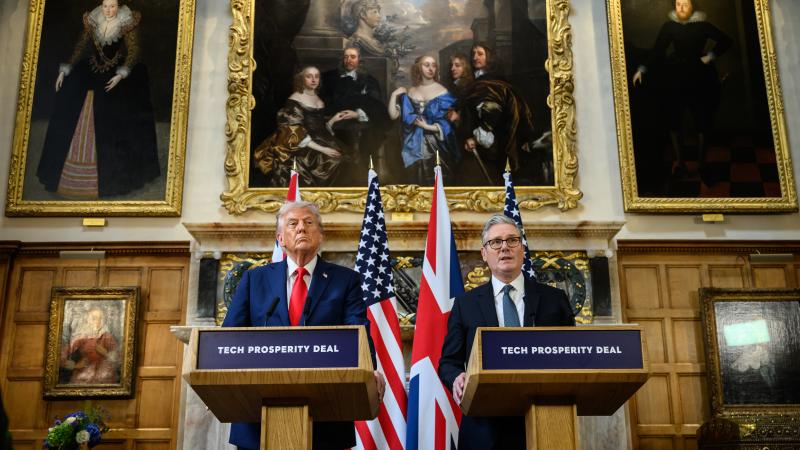TikTok collects Americans' biometric data for China, influences what they see: FCC commissioner
The commissioner warned that Chinese engineers are determining what users see
Popular Chinese video app TikTok poses a serious risk to Americans' personal information, Federal Communications Commission (FCC) Commissioner Brendan Carr warned.
An estimated 1 billion people worldwide actively use TikTok. A study from Qustodio, a company that helps parents monitor their childrens' internet use, found that U.S. children in 2020 spent an average of nearly an hour and a half a day on the app.
"They just see TikTok for what it appears to be on the surface, but that’s just the sheep’s clothing," Carr told Epoch TV on Friday about the app well known for funny videos.
"Engineers in Beijing are working on the algorithms very actively … deciding what is displayed to users in the U.S. and globally," Carr said.
"Whether it’s a foreign influence campaign or other content, it’s noteworthy that China does not allow TikTok inside of China, but yet they allow these types of influence campaigns to take place globally," he stated.
In mainland China, TikTok is banned, but its Chinese counterpart Douyin is still available.
TikTok.com immediately senses users' global location and directs them to funny videos in that language.
Douyin.com, however, directs users to educational and inspirational videos on its homepage such as one about the layout of a Chinese national highway system, a tribute to the Chinese military, information about the COVID-19 pandemic, and a couple of cute animal videos.
Guardian editor Alex Hern sounded the alarm about TikTok in 2019 when he said the platform removed videos about events against the Chinese Communist Party narrative such as Tiananmen Square and Taiwanese independence.
A BuzzFeed report last month revealed that Chinese engineers are repeatedly accessing user data from TikTok.
"Once data hits China, they have a national security law there that compels all of those entities there to assist them in espionage activity," Carr said.
Although TikTok has denied that it is giving Americans' information to the CCP, Carr said that on the app, "there’s an awful lot of data that’s being pulled from your device, and apparently sent back to China. Underneath that, it’s pulling biometrics, including face prints and voice prints; keystroke patterns and rhythms; search and browsing history; location information."
China could use users' private information for "all sorts of nefarious conduct," Carr added.
"They have a history of business and industrial espionage, blackmail. And so the concern is really when you’re taking that much data on that many international users … that’s really where the threat vector begins," he stressed.















